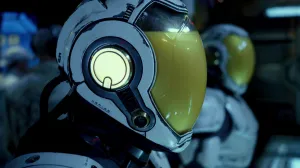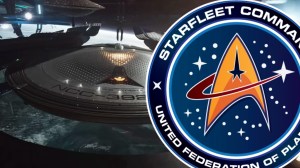
Creed, the latest film to feature iconic film hero Rocky Balboa and, if the studio has their way, the first installment in a new franchise centering on a new hero, is an objectively great film.
Videos by ComicBook.com
It’s brilliantly written and scored, with performances throughout that range from strong to wonderful, and a direction that injects so much energy and passion into an old idea, that it feels fresh and new. In this age of prequels, sequels, remakes and reimaginings, Creed is the rare example that’s so nearly perfect it feels — dare I say it? — necessary.
As with any big franchise, tentpole series, there will be the subjective criticisms and questions, as well. Will Rocky fans embrace the film and its hero? Would it have worked better to reboot with a new Rocky Balboa, or does Michael B. Jordan work better as Adonis Johnson? Should the writers have bypassed boxing altogether and focused on MMA instead, given the relative popularity of the two sports?
Those questions are the ones that film reviewers may be less likely to ask, but which could just as easily set the tone for the conversation around Creed, and determine its financial potential and long-term viability as a franchise.
Can you make a Rocky movie without Rocky? Probably not if its only appeal is to the kind of critics and film snobs who would be just as likely as not to snub a potential sequel on the grounds that it’s a sequel.
But I’m here to tell you, this is not that film.
There are a few reasons. First of all, Creed is a powerful movie if you’re a fan of the franchise, and almost equally effective if you aren’t. It’s nothing short of a masterpiece, and people who haven’t watched a Rocky movie before, or who checked out when Stallone reneged on “ain’t gonna be no rematch,” should go see it.
The filmmakers are acutely aware of their cinematic and cultural legacy, and they’ve approached it not only in a thoughtful way, but as fans themselves.
“This story, it just happens to have massive pop culture appeal, but Rocky movies were something that I sat down and watched with my dad,” director Ryan Coogler said during a event at the Front Street Gym in Philadelphia, where parts of the movie were filmed. “It was something that as far as I was concerned for a long time, was about my family.”

That is how I come to Rocky, as well. Back when I was a kid, my family had those old CED discs — big, plastic squares that had a record-looking thing inside. You had to flip it over halfway through the film, and they skipped all the time.
Rocky was, as far as I knew as a kid, my dad’s favorite movie. Between us, we watched it dozens of times, and almost always together with my brothers making it a family event. I saw and loved each of the first three sequels at least a dozen times, and even managed to forgive the huge, obvious flaws in Rocky III, Rocky IV and Rocky V because I was a kid, and this was a character and a property I loved.
(If you say you can’t relate to that, then clearly you haven’t spent much of your life reading comic books.)
It wasn’t until much later in life — when I started reviewing movies for my college paper, and started seriously looking at the technical aspects of fiction — that I realized what an amazing accomplishment Rocky actually was as a film. It was then that I started deconstructing the sequels and as a result it’s harder to watch some of them than others. But Rocky — like Back to the Future and Raiders of the Lost Ark and only a small handful of other popular films — provides a near-perfect template for making a satisfying, mainstream work of fiction.
That’s part of what made Rocky Balboa work as well as it did, and what made that decade-old film feel like it could have been the end of Rocky’s story. The film was so clearly patterned on Rocky that even though its internal logic was strained, it was hard not to enjoy — and it helped that Sylvester Stallone had aged along with Rocky and played the character in a deep, textured way that reminded you the films were about something and not just an excuse to have a never-ending sequence of good-looking fights.

Creed returns to the same formula, honing and enhancing what worked for Rocky Balboa and discarding what didn’t to make a film which, if you haven’t seen the original Rocky movies, stands on its own as a hell of an accomplishment. But if you watch it as a fan, and you know what it is you’re seeing, Creed is a rewarding experience both viscerally and intellectually.
There are probably some of you who are stuck back about 500 words ago, when I called the seventh installment of an escapist sports franchise “a masterpiece.” And that’s fair, it does sound a bit farfetched. Frankly, you have to see the film to truly appreciate what makes it work and unfortunately there’s an extent to which it cannot be fully appreciated without the discussion of some fairly major spoilers.
Ryan Coogler is one of the hottest directors in Hollywood — so much so that when I sat down with him at a Philadelphia hotel bar for an interview which will run next week, his first words were “I just have to tell you, I can’t talk about any other movies right now.” No one should be surprised to learn that the mind behind the acclaimed Fruitvale Station isn’t going to jump onto a mainstream franchise if he doesn’t have something interesting he wants to say about it. But we’ll set aside the direction for a moment to talk about why it is that I’m comfortable using the word “masterpiece.”
It’s the writing, and the music.
The screenplay by Coogler and his friend and co-writer Aaron Covington is brilliant in the way it manages to track story, character and emotional beats from Rocky while retaining its own identity, walking a tightrope of providing fanservice to people who have lived nearly four decades with Rocky Balboa while crafting a story that’s satisfying in its own right and stands alone.
This is particularly impressive because we meet almost every character in media res: a number of the film’s key relationships are already established before the cameras roll, and after a few bad decisions, anyone who isn’t familiar with the previous films could easily be lost in the nature of the relationship between Rocky and Apollo, between Apollo and his wife, etc. Instead, we’re given all the information we need to suss out the important parts, without spending too much time on background details.
Symbolic to the way backstory is handled in this film, Creed abandons the long-standing Rocky device of an opening-credits montage to catch viewers up with the events of the previous film sand instead showcases all the Rocky moments they want you to think about in photos on the wall at Adrian’s, the restaurant Rocky owns. They’re seen briefly, without fanfare, and they serve to move the story along and then fade back into the background. This isn’t Rocky’s story, after all.
It’s striking that balance between the needs of the story and the realization of the characters that will likely make Creed stand out in a crowded holiday box office. Coogler and Covington don’t have anything happen just because the story needs it to, they don’t take shortcuts and nothing in the movie outstays its welcome. The relationship between Donnie and Bianca — his downstairs neighbor with whom he becomes infatuated — is real, human, and given just the right amount of screen time so that you’re invested but it doesn’t feel like it’s taking over the larger narrative.
The music is handled in a similar way: this isn’t the Star Wars prequels, where they intercut new music with the classic material more or less half and half. The musical DNA of Creed is different than Rocky, and every track reflects that — and reflects Adonis. That said, Rocky is still a key element of the film, and throughout the course of the movie, there are flashes of that classic Bill Conti score. The effect is that when we get some of those horns starting to show up in the film’s third act, it feels earned. The audience I saw it with were giddy when some of those cues came in.
If there is a flaw to the film, it’s that those who have seen enough Rocky movies will recognize the formula. That’s in part because the subtle winks and nods that exist throughout Creed will give those in the know the ability to look two steps ahead and know where the film is likely to go — but i its defense, it’s the journey and not particularly the destination that defines a sports movie, and in the execution of the journey, Creed is a marvel.
Coogler is likely the best director to make a Rocky film, and he brought something tangible to the table, with both intimate character moments and large-scale fight scenes that sing. There are four particular scenes — an early date between Adonis and Bianca, two of the fights and the final scene between Rocky and Adonis — that make abundantly clear that the movie wouldn’t have worked as well if it were a studio film rather than something Coogler took very personally.
The first major fight in the film, in particular, is full of kinetic energy and has a claustrophobic feel that had the audience at my screening jerking around in their seats, feeling like they were in the fight. Shot all in one long take, Coogler told reporters that Michael B. Jordan and his opponent in that fight had to walk through the choreography together and essentially come up with an elaborate dance that they would do together once the cameras started to roll.
Both Jordan and Stallone brought it, and Sly is getting that kind of “early Oscar buzz” that rarely results in anything but might change some of the conversation around how Stallone is perceived by critics in his later years. He’s given a lot to work with, from family dynamics to personal loss to a struggle that drives a wedge between Rocky and Adonis and gives them separate but parallel fights to prepare themselves for.
Hats off to the screenwriters for making both Bianca and Mary Ann fully-formed characters with agency and their own subplots. As a member of the audience, I always loved Adrian because of Talia Shire’s remarkable performances, but generally she was given very little to do and could come off as a bit of a stereotypical disapproving wife figure.
In Creed, we understand and empathize with Mary Ann’s disapproval — she lost her husband to this thing that her son is now throwing himself headlong into! — and Bianca is an interesting, dynamic and fun character who might actually be the most likable person in the movie. Tessa Thompson fleshes her out brilliantly, and while the relationship between Rocky and Adonis is the engine that drives the film, Donnie and Bianca are irresistibly good onscreen. Whether he’s braiding her hair, they’re napping together in a post-ice cream coma, or they’re fighting about the latest in a series of bad, impulsive decisions by Adonis, the relationship is real, believable and enjoyable to watch. Probably my favorite single moment in the film came when we got to see Bianca’s reaction to Adonis’s first big win.
Part of the reason I no longer write many reviews is that I find myself to be cranky, picky and harsh. Few and far between is the film that I walk out of with joy in my heart and the desire to see it again soon. My general grumpy old man attitude isn’t fair to our readers or to the films.
Creed brought out something visceral in me, though, and I loved it wholeheartedly. The last time I remember enjoying a film this much, it was Guardians of the Galaxy — a movie I’ve watched probably a dozen times since, and every time it’s on I want to sing its praises again. Creed feels like a movie that will leave a mark. It feels like something that’s that good.
On some level it’s probably that I’m still watching Rocky in the living room with my family. And that’s fine. This is as much a blog post ruminating on how much I loved the film, as it is a “real” review. The point is, see this movie. Ideally, see it with your family, or with an audience, or someone you can share the experience with.








